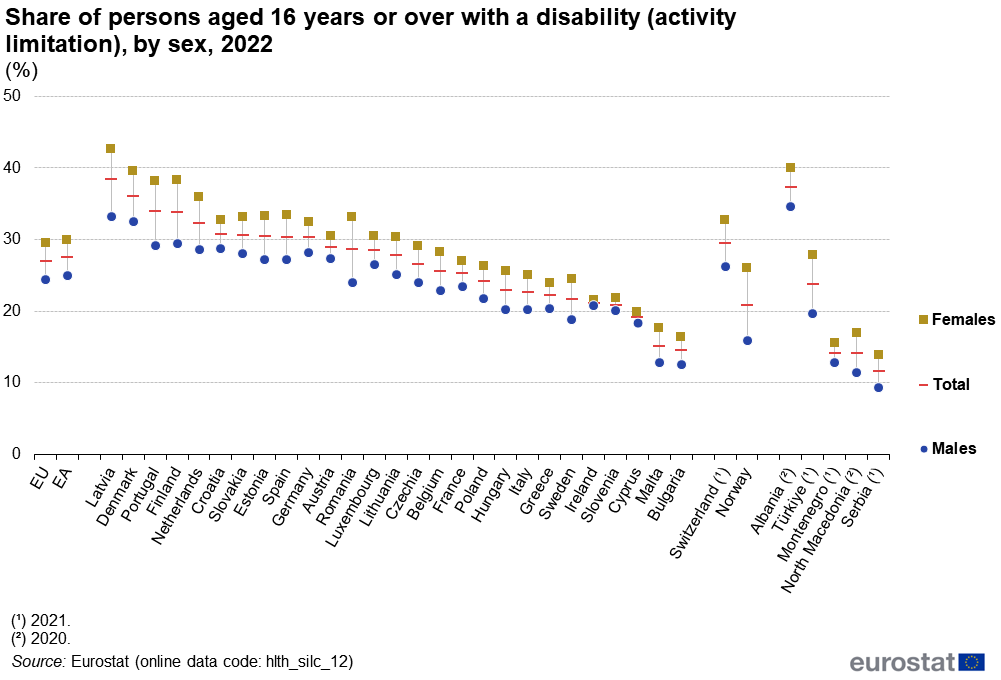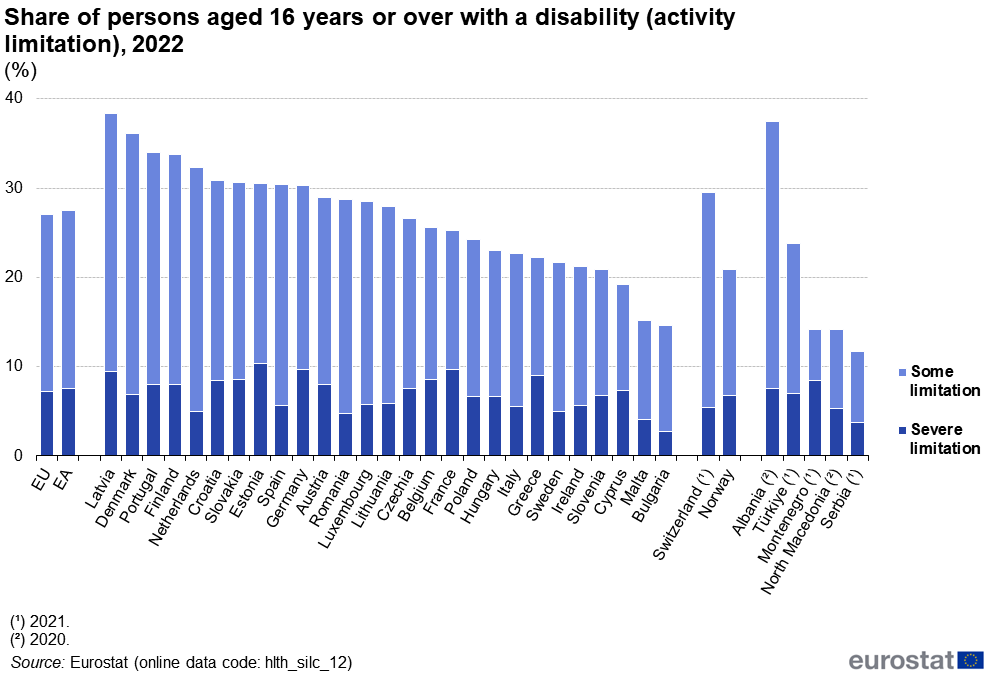19.8 % reported some limitation and 7.2 % reported a severe limitation (see graph above). For Latvia the figures were considerably higher – indeed, taken together, the highest in the European Union.
Across the EU Member States, the share of people who reported a disability in 2022 ranged from 14.6 % in Bulgaria and 15.1 % in Malta to more than one-third in Finland (33.9 %), Portugal (34.0 %), Denmark (36.1 %) and Latvia (38.5 %).
Looking in more detail, Estonia recorded the highest share of people reporting severe limitation (10.3 %), while Denmark had the highest share of its population reporting some limitation (29.2 %). When the two figures are added together, it's Latvia that takes the lead.
Males were less likely than females to report a disability in all of the EU Member States, with the largest gender gaps recorded in Portugal, Romania and Latvia (at least 9.0 percentage points (pp)). Cyprus, Slovenia and Ireland had the smallest differences between the sexes, as the share of females reporting a disability was less than 2.0 pp above the corresponding share for males.

Eurostat noted that as the figures are self-reported data they are, to a certain extent, affected by respondents' subjective perception as well as by their social and cultural background. However, despite their subjective nature, the statistics that are presented are considered to be relevant and reliable estimators of the health status of populations as well as good predictors of health care needs.





























